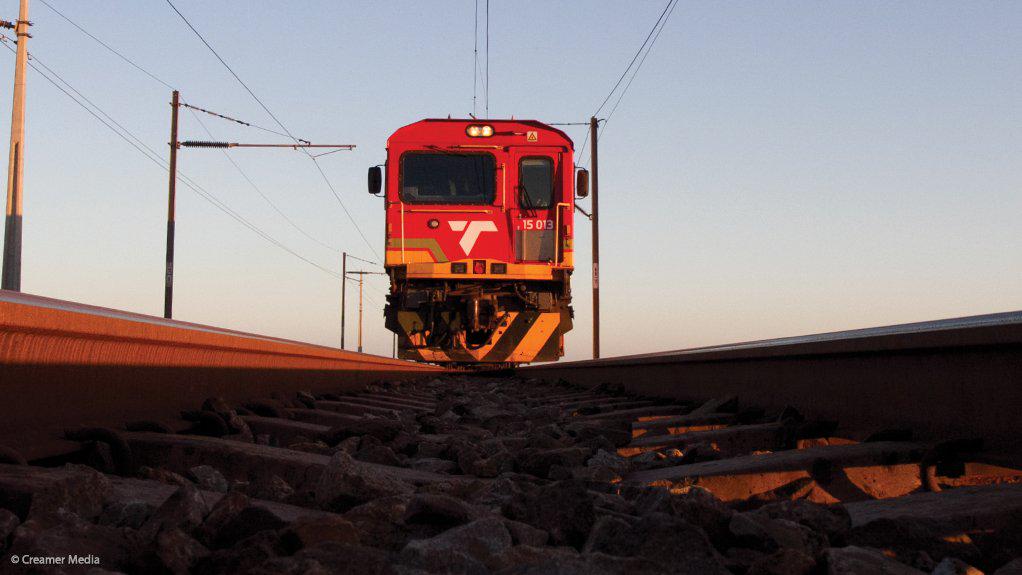Published
8 months agoon
By
zaghrah
In a rare moment of agreement between labour and management, Transnet has narrowly dodged a potentially crippling strike. After weeks of tense negotiations and arbitration, the state-owned freight and port operator sealed a three-year wage deal with its two biggest unions. It’s a win for labour stability, but the cost may weigh heavily on South Africa’s already struggling logistics backbone.
A 6% Raise and a Temporary Truce
The United National Transport Union (UNTU) and the South African Transport and Allied Workers’ Union (SATAWU), which together represent tens of thousands of Transnet workers, have accepted a 6% annual wage increase over the next three years. The deal, brokered by the Commission for Conciliation, Mediation and Arbitration (CCMA), also includes increases in pension contributions, housing allowances, and medical subsidies.
UNTU, which had previously rejected a similar offer due to concerns about long-term sustainability and inflation, eventually backed down, perhaps recognising the risk of a strike that could damage both the economy and public sentiment.
The agreement averts disruption at a time when the country can least afford it. Transnet is central to South Africa’s export economy, moving everything from manganese to maize through its rail and port systems. A strike would have put billions of rands in mineral and agricultural exports at risk, further undermining investor confidence in a sector already rattled by inefficiencies and delays.
Financial Fix or Fiscal Cliff?
But while the wage agreement brings peace on the labour front, it deepens the financial crisis brewing behind the scenes.
Moody’s has placed Transnet’s rating on review, warning that the company is running dangerously low on operational cash and will need urgent intervention to meet its debt obligations. Transnet’s five-year corporate plan shows it must repay nearly R100 billion in the coming years—funds it currently doesn’t have.
To plug the hole, government has stepped in with a R51 billion guarantee facility, approved by Transport Minister Barbara Creecy. While this may calm markets temporarily, it raises tough questions about how long taxpayers can continue to bankroll struggling state-owned entities (SOEs). Treasury has already signalled that additional support will be finalised by July 25, giving Transnet a lifeline, but also making it clear that this is not a blank cheque.
Public Sentiment: Cautious Relief and Growing Fatigue
On social media, the response to the deal has been mixed. While some workers celebrated what they called a “fair outcome in tough times,” others questioned the wisdom of pushing wage increases when the company teeters on the brink of insolvency. “It’s like patching a sinking ship with a bigger bandage,” one user tweeted.
There’s also a growing fatigue among South Africans watching another SOE stretch public finances to breaking point. The country has seen this before with Eskom, SAA, and Denel and many are asking whether Transnet is heading down the same path of bailouts, boards in turmoil, and executive reshuffles.
A Broader Logistics Crisis
This wage deal is just one piece of a much larger puzzle. South Africa’s logistics network has been in slow decline for years, plagued by cable theft, decaying infrastructure, and rolling blackouts. Transnet’s operational bottlenecks have already drawn fire from mining companies and exporters who rely on efficient transport to remain globally competitive.
The wage agreement offers breathing room, but it doesn’t solve these systemic issues. For Transnet to truly recover, it will need more than just cash. It will require reform, accountability, and a new blueprint that restores public and investor trust.
For now, Transnet has avoided a work stoppage and bought some time. But with nearly R100 billion in debt, declining infrastructure, and frustrated clients, that time must be used wisely. Labour peace is a win, but if the financial rot continues unchecked, it may prove short-lived. South Africa’s economy can’t afford to keep patching up its essential institutions. What it needs is bold structural change and fast.
{Source: Moneyweb}
Follow Joburg ETC on Facebook, Twitter , TikTok and Instagram
For more News in Johannesburg, visit joburgetc.com


Creecy and Hlengwa express grave concern over rising public transport road fatalities


More than 60 scholar transport vehicles impounded in Lenasia after Vanderbijlpark tragedy


Scholar transport safety pushed to breaking point after Vanderbijlpark tragedy


The 1,427: Inside the Human Choices That Defined SA’s Deadly Festive Roads


South Africa moves closer to a total ban on drinking and driving


Another Life Lost on the Tracks: Anger Grows After Second Fatal Train Death in Kempton Park















